GROMA project deals with a new cultural pole located in Ivrea, a medium-sized city in the Piedmont region, not far from Turin and Milan. The cultural resources the city and the territory offer are extraordinarily interesting, ranging from the traces of the roman Ivrea to the laboratory for the industrial city of the XX century, UNESCO worldwide heritage. This complexity is one of the reasons why the city identity today is multifaceted and not shared among all the inhabitants, therefore, the cultural resources are seen as a lever for a proposal which can symbolically mend Ivrea morphology, perceived nowadays as composed by two parts living as separate entities.
The core of the submission is to reflect on the cultural processes as enablers for the community and to propose the cultural production as a possible engine driving the transformation of the future vision of the city, which will encourage a new sense of identity and belonging.
The pole is born out of two traditional institutions, the Civic Museum and the Public Library and will redesign their meaning through the introduction of new functions. A new managerial body on top of them will allow them to rethink the content of the activities and commercial and non commercial meeting spaces on the basis of public private partnerships and better involvement of the municipality.
Diverse and active participation is a support of inclusive neighborhoods development to renovate the traditional access to culture and its structural programs. To that purpose, to help the urban regeneration and the establishing of new connections inside the city fabric, some temporary installations are imagined to be located in the public spaces. The community will actively produce them, and this will also foster the knowledge exchange between the different generations, enabling people to influence and engage with the environment in an active way.
The reorganization of spaces and activities also includes the reuse of an historical industrial building as an Open Deposit, a publicly accessible art storage and a digital archive. Thanks to both the deposit and the hub, the community will be able to live and share the cultural offer of the city and learn from it by using innovative digital tools. At a wider scale, numerous small museums and archives of the territory will benefit too since they will be involved in the construction of a shared identity that supports the preservation and digitization of the local heritage.
GROMA is a social oriented project with the mission to serve Ivrea and its inhabitants by offering an extended cultural access and non-commercial spaces that can increase the community cohesion, social inclusion and a wider accessibility to education out of the traditional framework.
The project tackles cultural and cognitive challenges to experiment new forms of fruition pivoting on the role of social processes in innovation and the cultural welfare of communities, seen as part of a dynamic environment where culture transcends the interior to become an intrinsic element of the city identity.
This approach can be applied to any other place in the world that struggles due to the lack of identity, influence of the past and shortage of opportunities for community involvement.
Concerning the methodology, GROMA reflects on the representation and perception of the heritage, the relationships among the community, the cultural production and the envisioning of the heritage as a common good.
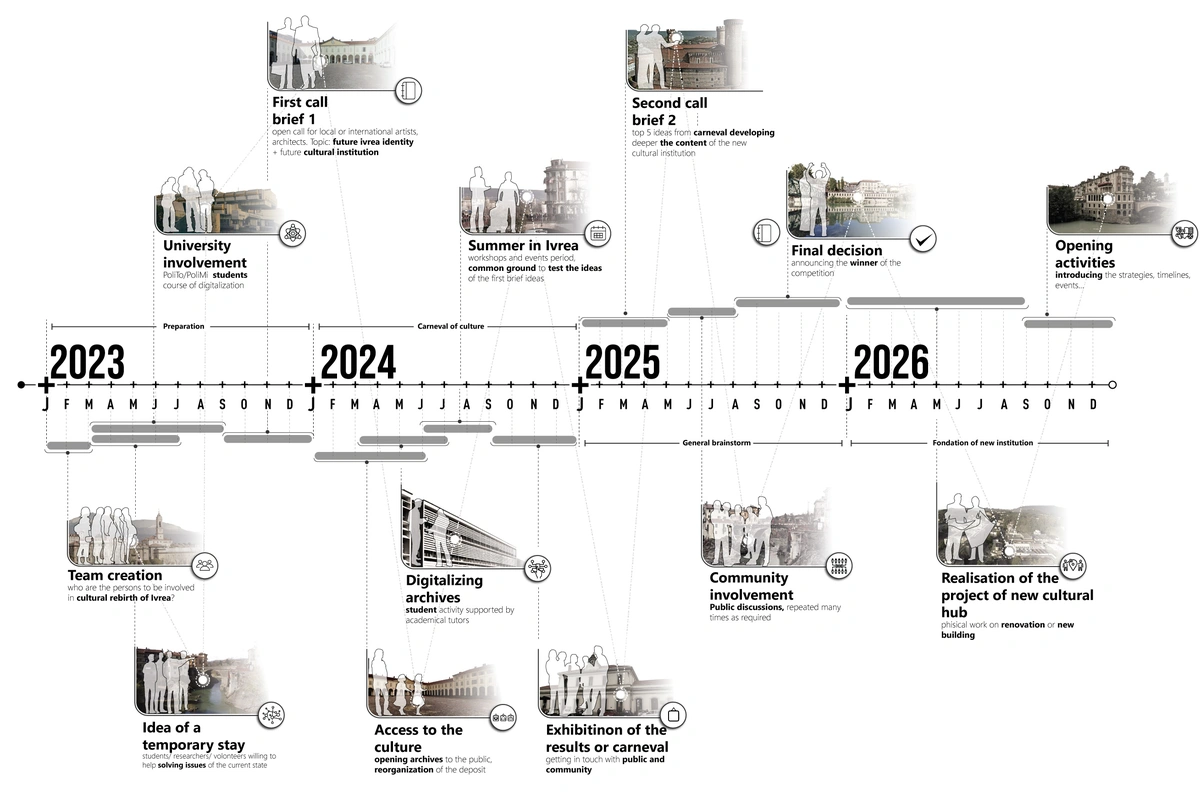
Representation of the envisioned four-years plan of actions, strategies and community involvement approaches.
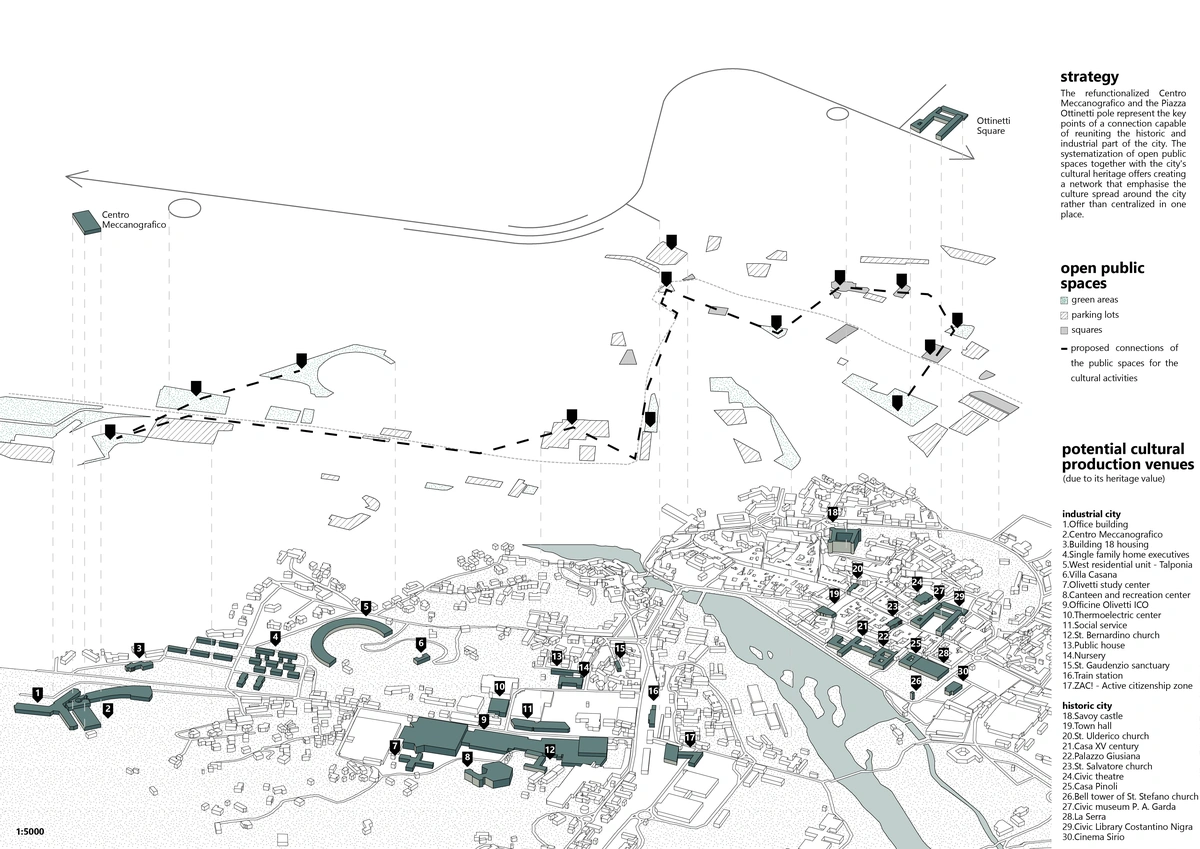
The re-functionalized Centro Meccanografico and the Piazza Ottinetti pole represent the key points of a connection capable of reuniting the historic and industrial part of the city. The systematization of open public spaces together with the city's cultural heritage offers creating a network that empha-sise the culture spread around the city rather than centralized in one place.
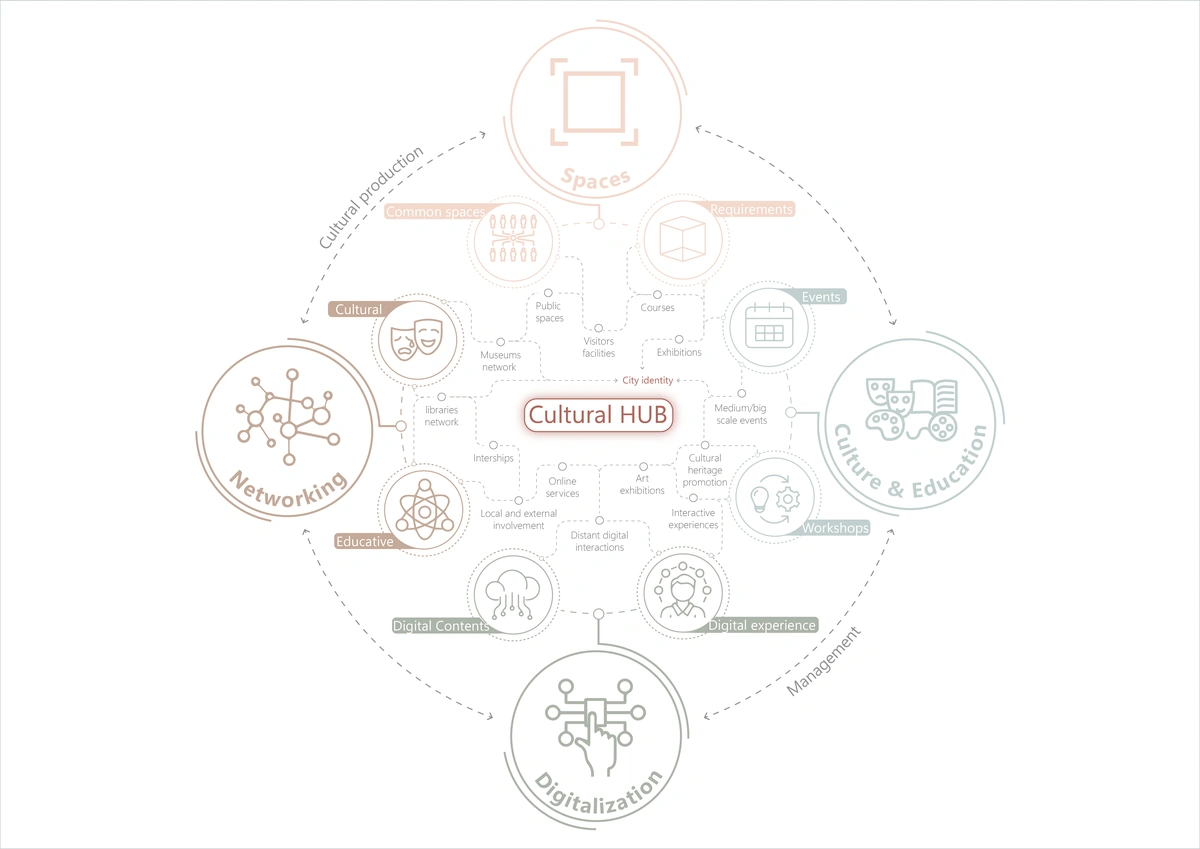
The main features of the cultural hub are designed to work synergistically in order to include all the activities of the cultural production and distribution at a local and regional level.
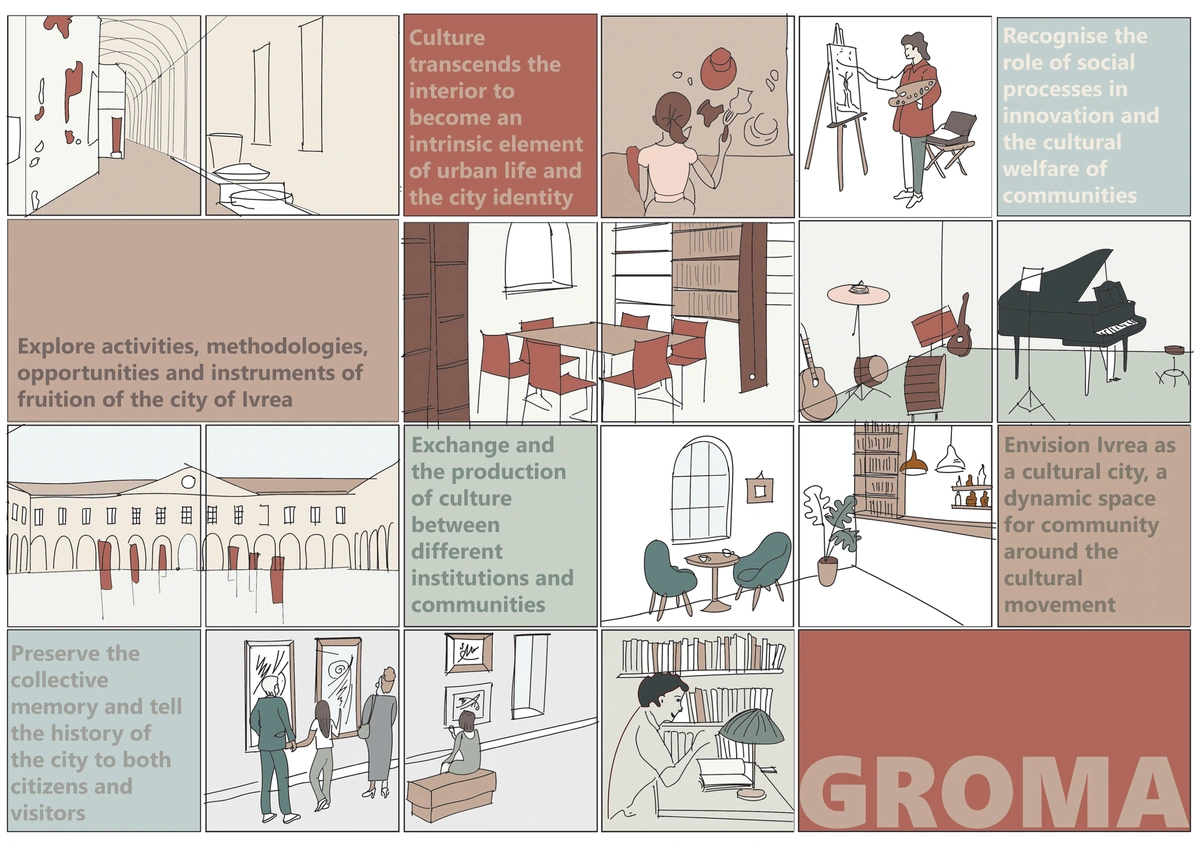
The atmosphere we have imagined for the city of Ivrea is that of a city capable of renewing itself through the production of culture. The active participation of those who use the city's spaces, the enhancement of local characteristics and the opening to an international network are the key features of Ivrea's new identity.
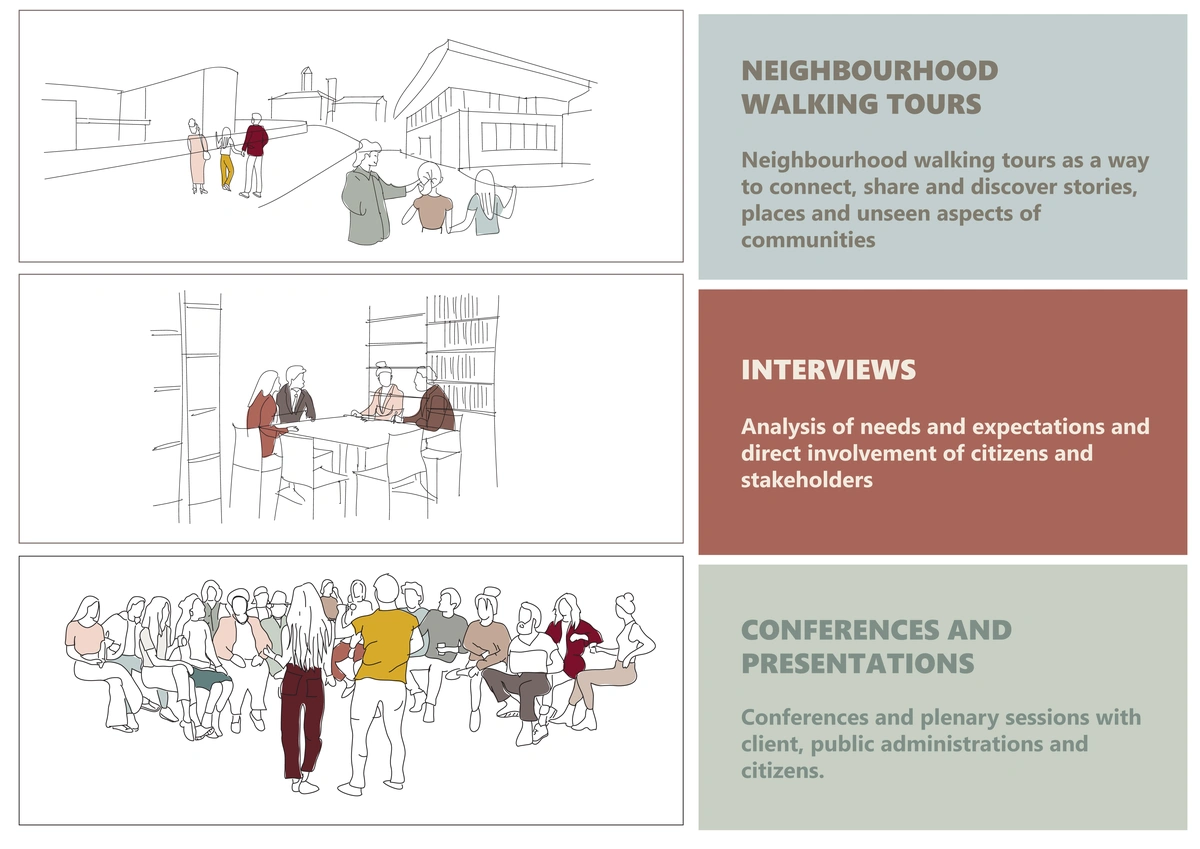
The methodology used following Alena Yaneva’s ethnographic research, to the practices of listening to the community (interviews, walks, explorations of the places, meetings…).
The project team is constituted by 6 master degree students from the architectural, design and engineering backgrounds in Politecnico di Milano and Politecnico di Torino, an architect and 4 academical tutors that collaborate with the Guelpa Foundation in collecting data to compose a dynamic framework where the guidelines for the organization of the new cultural pole and the identity of the city will be the outputs.
This group has been selected to work on the GROMA project as part of the Alta Scuola Politecnica program, a multidisciplinary international honor course aimed at nurturing students’ ability to learn from different fields of knowledge and cultures.
The involved professors currently work or formerly worked in one of the two universities and ASP program: Patrizia Bonifazio (Scientific Director and Coordinator of Ivrea UNESCO Candidacy), Alessandro Armando, Pierre Alain Croset and Alessandro De Magistris.
The expertise of Stefano Mirti is shared with the group as well.

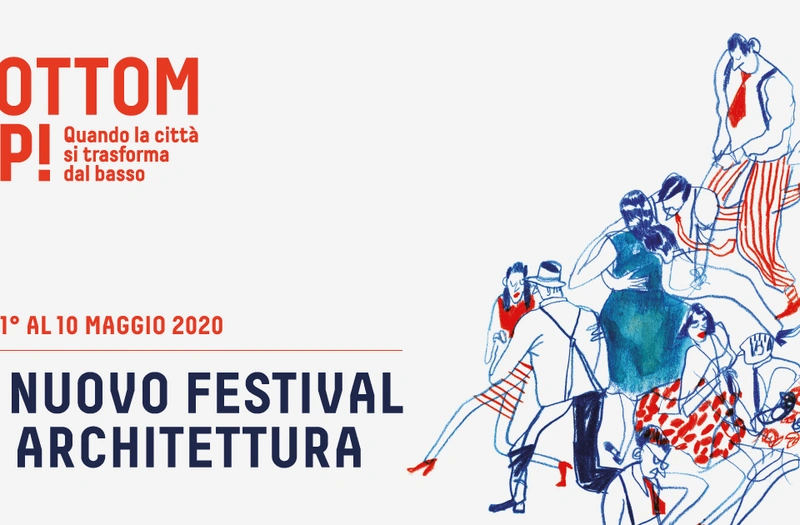
https://www.bottomuptorino.it/en/
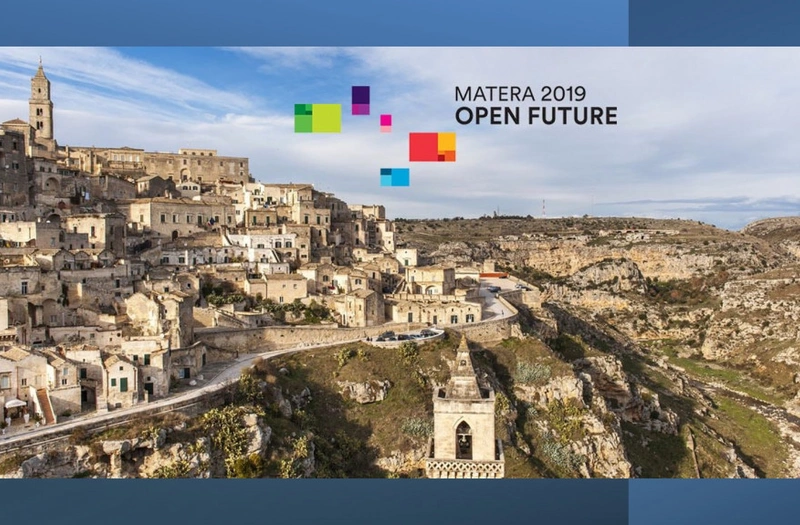
https://www.matera-basilicata2019.it/it/
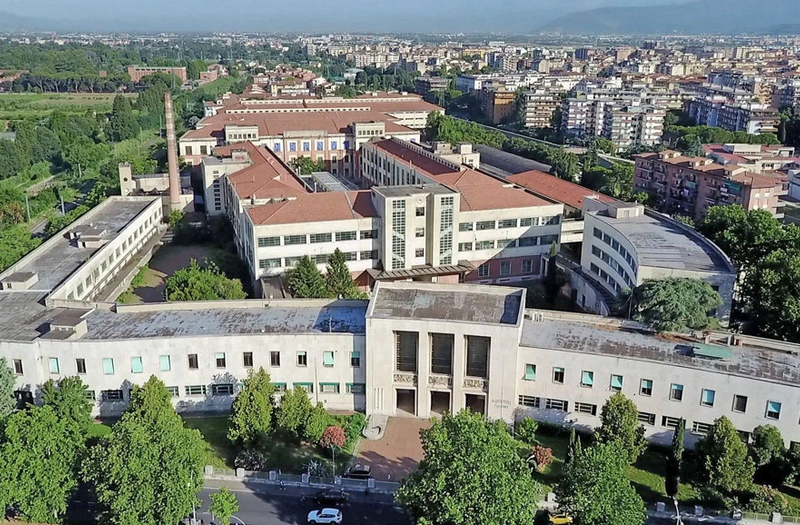
https://www.manifatturatabacchi.com/